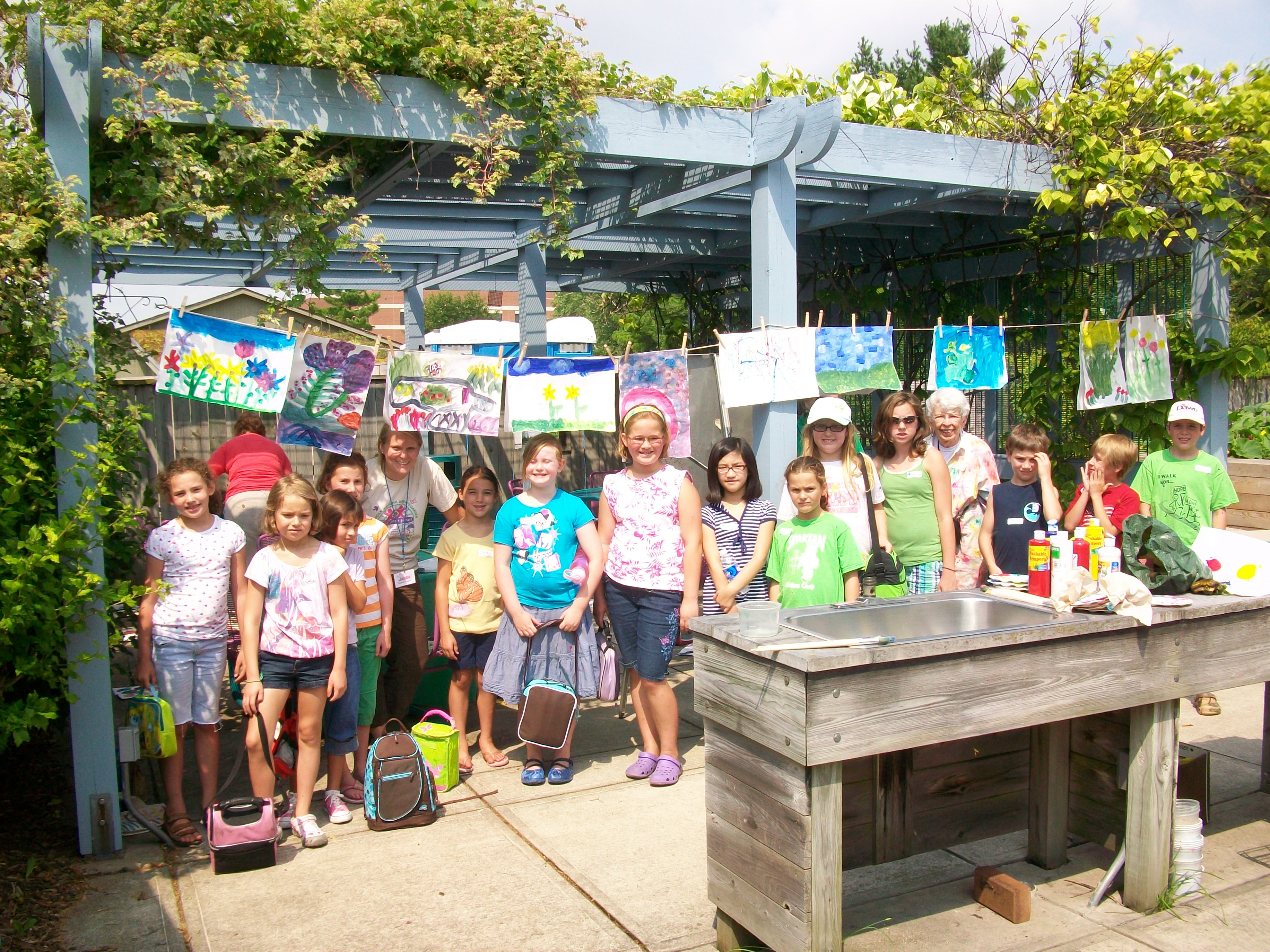4-H Children's Gardens receive estate gift from longtime donor and volunteer
Retired MSU professor and longtime Michigan 4-H Children’s Gardens donor and volunteer Linda Nelson, Ph.D., left an estate gift to support the Michigan 4-H Children’s Gardens.

The Michigan 4-H Foundation recently received an estate gift to support the Michigan 4-H Children’s Gardens from the estate of Linda J. Nelson, Ph.D., of East Lansing, who died Jan. 1, 2021.
Nelson was a retired Michigan State University (MSU) professor and longtime Michigan 4-H Children’s Gardens donor and volunteer. Nelson especially enjoyed teaching watercolor painting at Camp Monet, a three-day summer program held at the Michigan 4-H Children’s Gardens. This experience led her to naming the Michigan 4-H Children’s Gardens as beneficiary of a portion of her estate.
In a previous interview Nelson said, “I like the garden activities where kids do things rather than just look,” Nelson said. “When I donated to the educational programs and saw this on the program calendar, I asked how I could get involved.”
During Camp Monet, youth ages 7 and up learn about drawing, shapes, shading, mixing colors and sculpting. Lessons also featured artists Claude Monet, Henri Matisse and Georgia O’Keefe.
Each year the camp activities vary slightly. Activities have included finding and sketching shapes in the garden, painting flowers using Monet’s impressionist technique, painting ceiling tiles and creating relief foil sculptures.
“They’ve done some beautiful jobs decorating their bags,” Nelson said. “It’s interesting to watch the kids make friendships and to see who goes off to what spot in the garden to paint.”
Often times Nelson would help provide inspiration for youth participants’ projects.

“Linda was always such a great addition to Camp Monet — she donated not only her time and resources but also her experiences, which was a huge help when working with our young artists,” said Jessica Wright, Michigan 4-H Children’s Gardens interim curator and education coordinator. “We were so fortunate to have her share her talent and creativity with our youth participants for many years. We are thankful for her generosity to the Michigan 4-H Children’s Gardens.”
Born in Chicago and raised in Pennsylvania, Nelson attended the University of Pennsylvania, the alma mater of her grandfather, father and uncle. She was first in her family to pursue a master’s degree, from Iowa State University, and a doctorate, from Michigan State University. While her field was officially anthropology, she found gender limitations essentially pushed her into what was then called home economics.
For her both of her theses, Nelson studied the household practices of rural homemakers in villages in Costa Rica. This inspired a two-decade career developing programs to improve nutrition, sanitation and the quality of life in villages all across Latin America. Upon returning to the United States, she joined the Michigan State University faculty until her retirement in 1994. During her time at MSU, home economics evolved into human ecology, and she became chairperson of the Department of Family Ecology. She was instrumental in helping to establish the MSU Community Services Master’s Degree Program on Kadena Air Base in Okinawa, Japan, where she taught several courses. After retirement, she was active in developing and contributing to the Broad Art Museum education wing. She also served as secretary of the Faculty Emeriti Association (FEA) steering committee and edited books and papers for MSU faculty members and students, in addition to volunteering at the Michigan 4-H Children’s Gardens.
Nelson’s estate gift will help support the programs, like Camp Monet, as well as general operations, including annual care, maintenance and upkeep of the Michigan 4-H Children’s Gardens.
Estate gifts can be made in several ways: through a will or living trust, as a gift of retirement assets or as a gift of life insurance. Donors may choose a specific amount, a percentage of an estate or a residual after other distributions from an estate are fulfilled. Planned gift donors who have documented their legacy commitments to Michigan 4-H are recognized as members of the Michigan 4-H Foundation's A.G. Kettunen Society.
The society recognizes donors who have legacy gift intentions for 4-H while they are still living. It also allows donors to share their wishes and the impact they would like to see their gift make to benefit Michigan’s young people. A.G. Kettunen Society members receive a recognition certificate suitable for framing, permanent acknowledgement as a legacy donor in the foundation’s annual report, and, for gifts that exceed $25,000 at maturity, recognition as Cornerstone Society members.
For more information on planned giving and/or the A.G. Kettunen Society, contact Carrie Horstman at (517) 353-7075 or by email at greenca5@msu.edu.
The Michigan 4-H Foundation is a 501 (c)(3) non-profit organization that supports Michigan 4-H Youth Development. For more information about the Michigan 4-H Foundation, visit mi4hfdtn.org. Michigan 4-H Youth Development is the youth-serving program of Michigan State University Extension.



 Print
Print Email
Email





